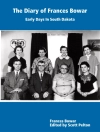In ‘Look Homeward, Angel, ‘ Thomas Wolfe presents a rich, semi-autobiographical narrative that explores the complexities of family dynamics and the quest for self-identity against the backdrop of early 20th-century America. Through the life of young Eugene Gant, Wolfe employs a lyrical, impressionistic style characterized by extensive imagery and rhythmic prose, which invites readers to engage deeply with the characters’ psychological landscapes. The novel is a potent reflection of the Southern Gothic tradition, blending themes of aspiration, alienation, and the search for meaning within the constraints of familial expectations and societal norms. Thomas Wolfe, born in Asheville, North Carolina, draws extensively from his own experiences growing up in a struggling family of stone masons. His profound introspection and vivid memories are woven into the fabric of the narrative, making ‘Look Homeward, Angel’ not only a personal testament but also a mirror reflecting the broader American journey during a time of transition. Wolfe’s literary career was marked by a restless pursuit of identity and place, elements that find resonance throughout this seminal work. This novel is highly recommended for readers seeking a poignant exploration of coming-of-age themes enriched by poetic language and rich character development. Wolfe’s exploration of the human condition and the universal struggle for identity makes ‘Look Homeward, Angel’ a timeless classic, relevant to both historical and contemporary contexts.
About the author
Thomas Clayton Wolfe (1900-1938) emerged as one of the quintessential American novelists of the early 20th century, with his penchant for exploring the complex landscape of human experience in an expansive, lyrical, and distinctly personal literary style. Wolfe’s first novel, ‘Look Homeward, Angel: A Story of the Buried Life’ (1929), provides an autobiographical account of his upbringing in Asheville, North Carolina, under the thinly veiled fictional town of Altamont. The book is noted for its rich portrayal of Wolfe’s early life and the detailed characterization of his alter ego, Eugene Gant. Wolfe’s narrative technique often involves a stream-of-consciousness approach, which builds on the psychological depths of his characters, a trait that aligns him with contemporaries like James Joyce and Virginia Woolf. ‘Look Homeward, Angel’ was received with both accolades for its expressive prose and controversy due to its candid reflection of Wolfe’s own life that included real-life family and acquaintances. The novel set the path for Wolfe’s literary legacy that includes other substantial works such as ‘Of Time and the River’ and ‘You Can’t Go Home Again, ‘ solidifying his reputation as a giant in capturing the sprawling American experience. Wolfe’s talent, marred only by his premature death at the age of 37, was recognized by the literary community for its originality, scope, and the vivid, impassioned voice that still resonates in the canon of American literature.












